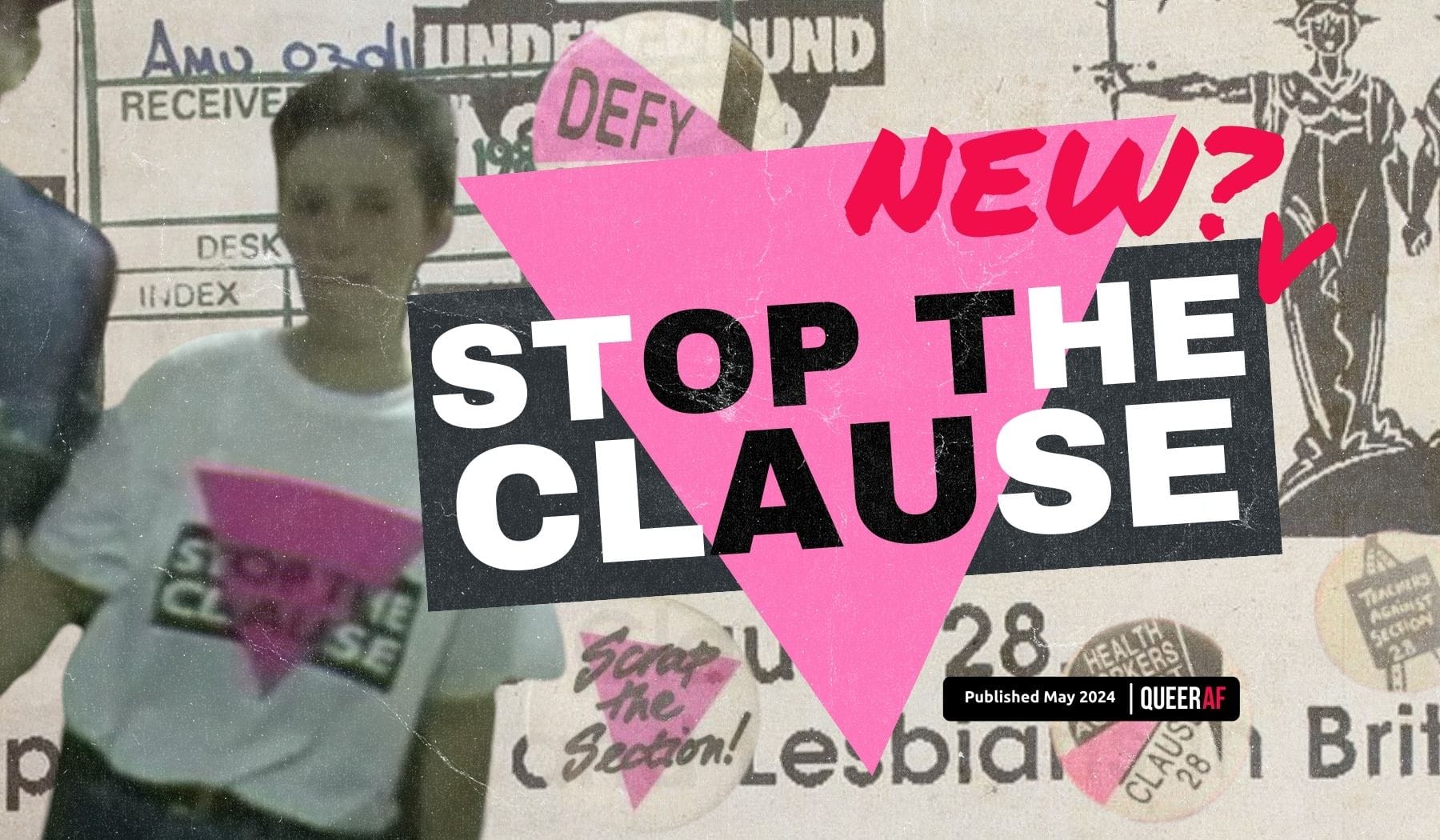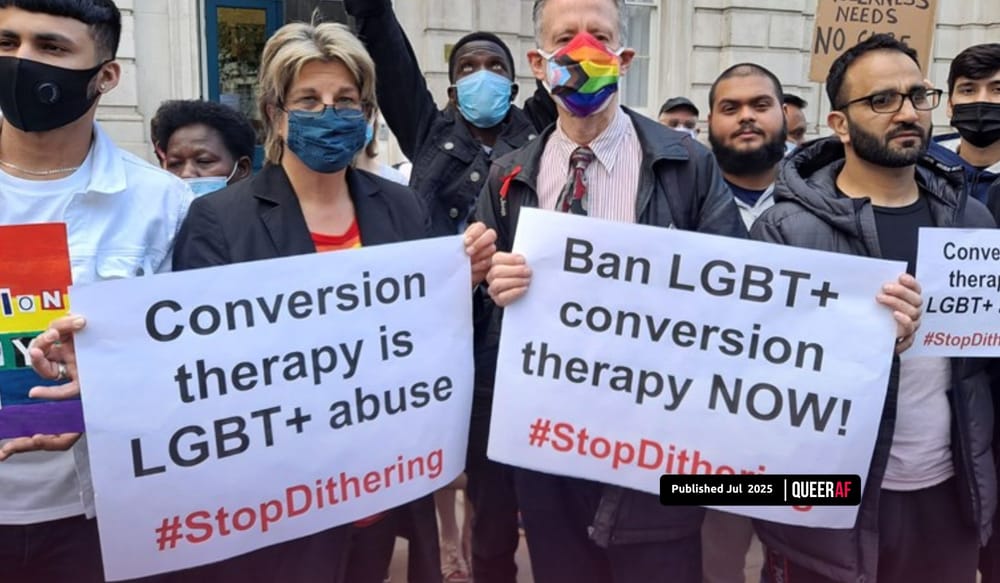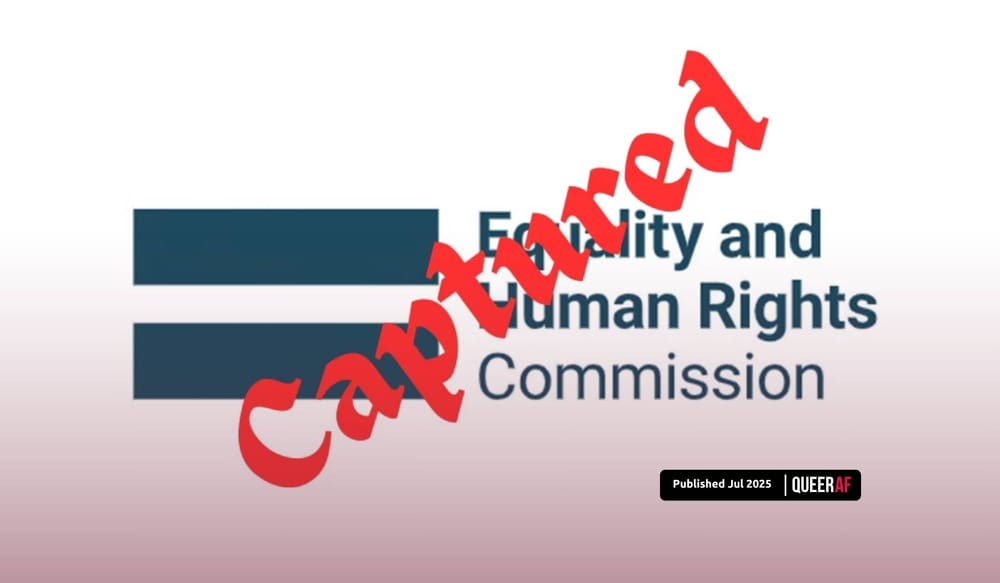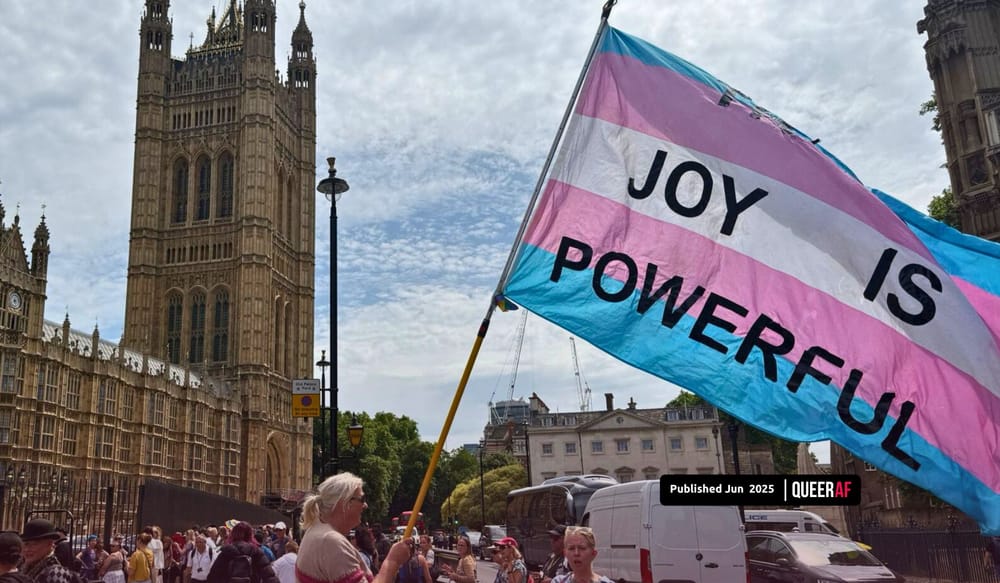
TL;DR: The government has announced new statutory guidance for relationships, sex and health education (RSHE). It will ban discussions of ‘gender identity’ in the classroom and impose a blanket age limit on sex education. It’s been decried by LGBTQIA+ groups as one of the most egregious attacks on discussion of our lives in schools - and dubbed a second ‘Section 28’ by many as it mirrors the clause’s ban on “promoting homosexuality”.
Education Minister Gillian Keegan has announced a consultation on new statutory guidance for relationships, sex and health education (RSHE). As written, the guidance will impose a ban on certain sex and relationship topics until pupils are over 13, and “the concept of gender identity” will be banned entirely. This mirrors the infamous ‘Section 28’ clause, which banned the “promotion of homosexuality” in schools and local services - gov.uk
It follows an acceleration of the previously planned review of England’s statutory guidance on relationships, sex and health education (RSHE) in March 2023, after pressure from Conservative MPs who claimed that inappropriate subjects and graphic material were being taught - despite little evidence - QueerAF
The guidance will also further affirm an existing right that schools will be required to provide parents with samples of the material their children will be taught.
The guidance will be statutory, meaning schools will have to implement it, unlike the advisory gender questioning guidance which is not mandatory. However, the new statutory guidance references the gender questioning guidance and says it should be implemented, essentially making it mandatory by the back door. This guidance encourages schools to ban trans students from some toilets and changing rooms. The legality of the advice was questioned by some equality lawyers because it effectively discriminated against pupils for being transgender, but because it wasn’t statutory, there was little legal process for it to be contested.
The news has left many in the LGBTQIA+ community shocked and upset. Speaking to QueerAF, Laura Mackay, Chief Executive of LGBT+ young people's charity Just Like Us, said they are "deeply concerned by some of the proposed restrictions outlined in the draft RSHE guidance published today, which could have a detrimental effect on the mental health and safety of pupils."
Teachers will be told not to teach young people that they can change their gender identity
“At secondary school, pupils will learn about legally ‘protected’ characteristics, such as sexual orientation and gender reassignment, but the updated guidance is clear that schools should not teach about the concept of gender identity.” - The draft guidance, as seen by QueerAF
In a press release prior to the guidance being published, the Education Minister said that gender identity is "highly contested" and that teaching the issue could have "damaging implications".
The guidance also instructs teachers to discuss “biological facts” about sex.
“If asked about the topic of gender identity, schools should teach the facts about biological sex and not use any materials that present contested views as fact, including the view that gender is a spectrum.” - Draft RSHE guidance 46. Pg 12
Analysis: Pupils from year nine onwards will learn about the laws surrounding protected characteristics - including gender reassignment - yet will not be taught about the concept of gender identity. The question is, how can you teach about gender reassignment without teaching gender?
Will trans pupils who have socially transitioned and have the support of their families be told not to discuss their identity in the classroom, or will they simply not receive any sex education that reflects their experience? Either way, trans pupils will be at a disadvantage.
New guidance will introduce age limit on sex education
The new guidance imposes an age limit on sex education, instructing that it “will not be taught before Year 5, and at that point [only] from a purely scientific standpoint.” This is aimed at addressing concerns from a handful of Conservative MPs that young people are being exposed to ‘sensitive material’.
The current curriculum encourages “age-appropriate” RSHE at all ages, with strict restrictions on what can and should be said to different year groups.
The guidance will state that any form of sex education will not be given to pupils until Year 5 - age nine - but that ‘explicit’ conversations on sex and topics including abortion, contraception, STIs and domestic abuse (including stalking and sexual violence) will not take place until Year 9 - age thirteen.
Before that, pupils will learn about ‘basic sex’ - topics such as conception and relationships.
Lucy Emmerson, chief executive of the Sex Education Forum, said: "If topics were to be restricted, it will leave children even more dependent on getting answers about topics [such as] pornography, coercive control and STIs (sexually transmitted infections) from online sources."
Analysis: 13 has been deemed the ‘appropriate’ age for discussions of sex and pornography due to most social media platforms having an age limit of 13+.
But in 2022 Ofcom found that the majority of homes with individuals between the ages of 0-18 (97%) had access to the internet.
Delaying education on safer internet practices and porngraphy is dangerous for young people, and many will have already been exposed to these sorts of sites and content before they learn about it in the classroom.
How can you teach conception without teaching about STIs or contraception until 4 years later? As Lucy Emmerson said, a lack of STI education will endanger young people and encourage more risk-taking sexual behaviour.
New sex education guidance will affirm right for parents to see content
The new guidance will reaffirm an existing set of guidelines, which requires schools to provide parents with samples of the material their children will be taught.
Though access to RSHE materials has always been a part of the RSHE guidance, speaking about the new draft, Keegan has been claiming that parents have been restricted from viewing said material in recent months. The materials in question which led to the review were brought to the government's attention by MP Miriam Cate. Cate claimed that young people were being taught ‘how to perform oral sex’ or ‘safe choking methods’ or that there are ‘72 genders’ - Sky News
These claims were dismissed following a statement from the online sex educator whose adult content was used as evidence. The material was never used in UK classrooms.
Analysis: This has all the echoes of Section 28, from it's language to the damage it will do
This guidance talks about ‘age-inappropriate’ materials being used in the classroom. However, head teachers have said there is no evidence of a widespread problem with age-inappropriate materials and rather that the review is "politically motivated" - BBC
The government press release begins, "Children will be protected from inappropriate teaching on sensitive topics thanks to new proposals from the government". The use of ‘protected’ mirrors language used during Section 28, which referred to the concept of the ‘innocent’ child.
With the addition of terms like ‘sensitive’ and ‘inappropriate’, it is hard to deny that the government deems LGBTQIA+ identities and education something young people should be shielded from.
Sex education has had a turbulent journey in regards to LGBTQIA+ inclusion - and now, with this latest guidance, we have taken a step back towards a Section 28-like approach, which sadly erases many of the steps we took forward in the 2020 guidance. This will harm all pupils, not just trans pupils.
So what connects the government’s strategy of enforcing their legally questionable trans pupils guidance via this statutory guidance, the Cass Review and a ban on trans women on single-sex wards in the NHS?
They are all responses to problems that don’t exist, using fabricated or baseless evidence, all in an attempt to stoke a culture war ahead of a general election that polling suggests the Tories will lose.
As the Conservative party struggles in the polls, they’re playing politics with our lives and making decisions that will increase hate crime, suicide rates and worsen the livelihoods of LGBTQIA+ people all over the UK.
As we learned from round one of Section 28, the harm of this style of approach leaves damages for a whole generation left more vulnerable for their whole lives - for the sake of politicians being able to play politics in the last few months of a dying government.
New Sex Education guidance: What can we do?
The draft guidance is exactly that - a draft - and is currently under consultation. There is still time to have your say. Organisations such as Brook are preparing resources for the public to use during the consultation period and individuals like myself will also be posting tips on how to take part.

A new Section 28.
Reporting on government plans for a 'new Section 28' requires a proper investment of time, journalistic skill, and knowledge.
We asked Dee Whitnell to write this week's story - because, as a qualified sex educator, former teacher and expert Trans+ journalist - they could do justice to this story better than anyone else.
It's the way all media and journalism should be done. Trusting those with lived experience to tell the stories that will impact their lives the most.
At QueerAF we trust Trans+ talent.
At QueerAF we invest in Trans+ talent.
At QueerAF, we run our newsletter without adverts - so the journalism we create here is free from outside pressures.
You can help us deliver more of this with just a few clicks—for just the price of a coffee a month.
If this 4.8/5 star rated newsletter is what we can deliver right now, imagine what we could do if even a handful more people upgraded to paid.
If you believe in our approach - become a QueerAF member today. We can't run this newsletter and deliver our queer accountability journalism without you.














